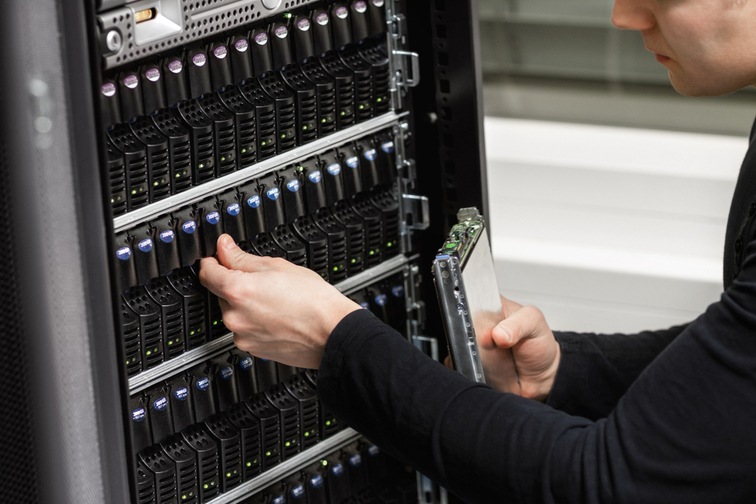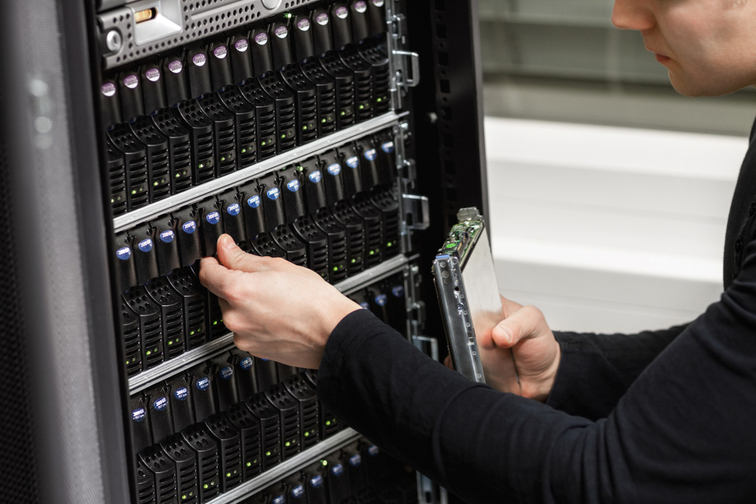 HPC is the practice of processing data and performing complex calculations at higher speeds than typical servers. It exists for the growing need across several use cases.
HPC is the practice of processing data and performing complex calculations at higher speeds than typical servers. It exists for the growing need across several use cases.
A significant step up from average data analysis, high-performance computing provides the extra horsepower needed to process, store and analyze data at scale. HPC works behind the scenes in several facets of our lives. From weather predictions to fraud protection, the power of HPC extends far and wide.
HPC can essentially add more computing capabilities for businesses that are already dabbling in data. Here’s more on HPC and why it matters to your company’s IT operations:
What exactly is HPC?
By definition, HPC is the practice of processing data and performing complex calculations at a higher speed than typical computers and servers can deliver. It exists because of a growing need for advanced processing speeds across several use cases. While an average laptop or desktop can perform billions of calculations per second, HPC technology makes it possible to essentially quadruple that performance speed. TechTarget noted that these systems can function above a teraflop, which is a trillion floating point operations per second.
Such computing power is necessary for the large amounts of data and complex problems involved in science, engineering, technology and business operations. HPC can aid in detailed research and advanced problem-solving through modeling, simulation, analysis and concurrent uses of computing resources.
It's important to note that while the terms “HPC” and “supercomputing” are often used interchangeably, they are not quite synonymous. They both refer to computing power and advanced capabilities, but supercomputers are not the only types of HPC machines that companies can employ.
How do HPC systems work?
HPC systems incorporate a range of technologies, including computers, servers and software. This creates a large network of compute nodes and clusters that can work together to complete several tasks at once. Think of it as combining several computers and servers into a superior, high-performing unit. Formally, this is called parallel processing.
High-performance computers have all the components of your average laptop, including processors, memory, storage and operating systems. The difference is that there is a greater volume of all those working components - hence the advanced computing power. Rather than there being just one device, there are clusters of computers. HPC clusters consist of hundreds or thousands of servers. These individual servers, also called nodes, work in parallel together to increase processing speed and capabilities.
Software programs and parallel-processing algorithms run on the cluster servers and should be tailored to the user’s purpose. The appropriate operating system for your business, for instance, will support the applications and processes you need to use. The final component of an HPC solution is data storage, which captures the output.
For optimum efficiency, all the system components run at similar paces. That way, the storage element can absorb data from the cluster server at the same rate that processing occurs. Concurrent components keep the HPC infrastructure operating at the desired levels of performance. What’s more, HPC systems require high bandwidth and networks that can connect the HPC clusters.
Who uses HPC solutions?
If there’s a ton of data that needs to be synthesized into useful information, there’s a need for HPC solutions. As such, HPC applications span several disciplinary areas and industries, such as:
● Science and biotech: HPC is especially relevant in research and education applications.
● Engineering: Stress and strain analysis, computational fluid dynamics, heat thermal examinations, etc.
● Semiconductor materials: HPC facilitates design and manufacturing processes.
● Oil and gas: Modeling, performance improvements and identifying where to drill for new wells.
● Artificial intelligence and machine learning: Credit card fraud, self-driving vehicles, medical procedures, technical support, etc.
● Media and entertainment: Feature film editing, live streaming and computer-generated imagery.
● Financial services: Track stock market trends and automate trading processes.
● Product development: Design, simulations, testing, inventory management and production optimization.
● Geographic tracking and climate modeling: Identify sources of renewable energy, determine ideal locations, make predictions, etc.
HPC applies to businesses of all sizes, but especially for those that have large data warehouses and hefty transaction processing.
Why is HPC important for business performance?
With the exponential amount of data available in today’s connected world, companies must have the means to collect and process the information in real time. The job doesn’t end there, though. Businesses must also dedicate time and resources to translate that data into meaningful information they can use to make strategic decisions, prepare for disruptions, plan for company growth and implement necessary changes in response to relevant industry and social trends. Gone are the days of relying on pure intuition. With significant profits and consumer satisfaction at stake, business leaders must back up their gut feelings with hard numbers.
The reality is that for certain companies, the sheer amount of data they need to process, store and analyze requires more robust computing capabilities than their manpower can handle. While HPC can be a hefty expense, it’s a necessary and worthwhile investment for these businesses. The speedy and reliable infrastructure for data management and problem solving allows employees to focus their attention on driving growth by implementing new and innovative systems and processes rather than just collection and analysis.
The data-driven world also pressures companies to accelerate their digital transformations. HPC adds fuel to the fire, bolstering efforts to automate processes and provide better solutions for customers and clients.
HPC can further aid companies in gaining an edge over the competition, providing them with a powerful means to enable more efficient operations.
How can HPC services help businesses?
As with any digital solution, short lifecycles and high turnover rates are common in HPC systems. There’s always an opportunity to replace an old server or update technology. What’s more, handling all HPC components in-house means a company must manage and maintain its own infrastructure and essentially run as a data center. All of sudden there’s a full lineup of IT employees needed just to keep the infrastructure running - and the overhead soars.
An HPC service provider can eliminate the distractions of running an in-house data center, allowing companies to focus on their core business. Samsung HPC managed services, for instance, offers businesses a cost-effective way to expand or outsource computing, storage and network infrastructure. The IT department can focus on managing applications, services and data while Samsung handles running and maintaining hardware and data center infrastructure.
The benefits of handing the reins over and investing in infrastructure as a service include cost savings, risk and security management, the seamless progression of scalability and consistent monitoring for fault-tolerant operation. Ultimately, you’ll get a reliable extension of your IT team that can help you get the most out of your HPC solution.

George Milner is a Solutions Architect for Samsung SDS' HPC Managed Services.
- Four Big IT Transformations for Enterprise Agility
- An Agile Approach, the Core of Corporate DT for Working Culture Innovation
- Digital ESG, a Critical Success Factor for ESG
- Conversational AI War Begins. Who Will Be the Winner?
- What Is Matter, the New Smart Home Standard?
- 2023 Forecast for Technology Trends
